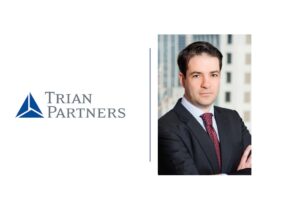
By Soo Kim
The boards of directors of U.S. public companies overwhelmingly lack diversity. Within the Russell 3000, only 20% of directors are women and just 10% represent racial or ethnic minorities.[1] Much has been made in recent years about this lack of diversity. Notwithstanding calls by many of the world’s largest investors and asset management firms to increase diversity in the boardroom, there is still a wide divide between what investors support as a public policy matter and what they are willing to push for at companies they own.
For instance, of Berkshire Hathaway Inc.’s fourteen directors, only two are minorities and just three are women. At Berkshire’s recent Annual Meeting, Warren Buffett asked shareholders to reject a proposal from the New York City Comptroller’s Office that would have required Berkshire simply to interview “qualified female and racially/ethnically diverse candidates” in external searches for CEOs and directors at its companies.
I point this out because Mr. Buffett is universally admired by all, including myself. There are strong structural forces reinforcing the status quo that serve as formidable obstacles to achieving increased diversity in the boardroom. If we wait for sitting boards and management teams, even those with the best of intentions, to effectuate change, we will be waiting a very long time. If real change is going to happen, it will need to come from shareholders expressing their values while exercising their governance rights at the ballot box.
My firm, Standard General, has an active, long-term investment approach that involves taking meaningful stakes in public companies facing change and challenges. In our experience, one of the best ways to tackle uncertainty is to bring fresh perspectives into the boardroom. Over the last thirteen years, quietly and with purpose, I have worked with multiple companies to add women or minority directors in more than a dozen instances – not because increasing diversity is Standard General’s publicly-stated objective – but because I value diversity of thought and background as a real asset in the boardroom, and it is the right thing to do.
We know we are not alone in our commitment to diversity – many of the largest asset management firms in the world, including Blackrock and Vanguard, have publicly called for increased boardroom diversity. Blackrock, Inc. CEO Larry Fink in a speech last year said, “We know – empirically – that diverse groups make better decisions….So we have to get women…and people of different backgrounds and ethnicities and ages in the room. Because without diverse thinking, organizations fail.”[2]
This is exactly what we sought to do when we recently contested an election for the board of TEGNA Inc., a local broadcast television station operator whose shares, according to Institutional Shareholder Services (ISS), “underperformed the peer weighted average [total shareholder return] by 31.7 percentage points.”[3] We proposed adding four diverse nominees with an average of more than 20 years of local affiliate broadcasting experience to a board without a single independent director with experience in TEGNA’s core local television broadcasting business. Our non-control slate, which consisted entirely of women and minorities, also would have resulted in TEGNA joining the 1% of US listed companies with a majority woman board, and doubled the number of ethnic minorities from two of twelve to four of twelve.
We are TEGNA’s largest shareholder in a situation where change was welcome by many, and yet, in the race to win shareholders’ support for change, we found ourselves starting the 100 meter dash 50 meters behind.
The growing dominance of passive management is a distinctive feature of today’s U.S. equity market. Large, low-cost mutual funds and other passive vehicles that mimic the performance of equity indices have attracted a substantial portion of equity capital with their lean fee structures. I celebrate the value that these products offer consumers and their function to democratize equity ownership.
The downside of a passive vehicle, however, is that passivity is not a virtue when trying to facilitate change. Passive managers do not pay investment analysts and portfolio managers to understand the fundamentals of the shares that they own. But once a year, they have a critical say in the shareholder meetings that determine the governance and strategic direction of public companies.
In 66 contested elections over the past five years, the largest passive investment managers have voted completely with management almost 80% percent of the time. While I would never suggest that the BlackRocks and Vanguards of the world should outsource their voting decisions to a third party, I will note that in those contests, ISS and Glass Lewis recommended completely for management only 45% and 51% of the time, respectively. When combined with the uncontested elections that represent the overwhelming majority of shareholder meetings, passive managers voted with incumbent management 99{% of the time.
This sends a powerful reactionary signal to companies and makes it exceedingly difficult to effectuate change that is not curated by the sitting board. The statistics are clear. These funds may be passive, but when it comes to voting, they are far from neutral. Passive investing is almost always a vote in favor of incumbents. Even when the investing public generally agrees on the value of increased diversity, the deck remains stacked against change and stacked in ways that specifically disadvantage women and minorities.
The results of TEGNA’s election offer a clear demonstration of these structural challenges to change. While many active managers supported our nominees, passive investment managers voted overwhelmingly in favor of the Company’s slate. Had either BlackRock or Vanguard alone voted as recommended by ISS for even one of our nominees, we would have been successful in diversifying TEGNA’s Board.
A shareholder’s only right beyond its fractional economic interest in a company is a vote in a corporate election. However, if the vote is not really a vote, but rather a confirmation of the status quo, this threatens the very concept of shareholder democracy. There is no ambiguity in voting patterns. This structural bias is a grave impediment to achieving shareholder value and the ESG ideals large asset management firms have publicly embraced. Diversity does not come at the expense of shareholder value. Rather, as Larry Fink rightly observes, diverse perspectives contribute to the success of an organization and shareholder value creation.
While we applaud large asset management firms for supporting diversity in the public square, we also urge them to remove their thumb from the scale so that the progress Americans want to see in our corporations can be realized.
Soo Kim is the Founding Partner of Standard General and is the firm’s Managing Partner and Chief Investment Officer. He has been investing in special situations strategies since 1997, and also serves as Chairman of the Board of Directors of Twin River Worldwide Holdings, Inc. (NYSE: TRWH), the owner and operator of several casinos in the United States.
[1] Harvard Law School Forum on Corporate Governance: U.S. Board Diversity Trends in 2019; Russell 3000: 2020 Women on Boards Gender Diversity Index
[2] Larry Fink on LinkedIn: “The Importance of Diversity: My Speech to the Women’s Bond Club.” Published April 21, 2019.
[3] Institutional Shareholder Services Special Situations Research “Tegna Inc (TGNA): Proxy Contest with Standard General” Published April 17, 2020.
Contact:







